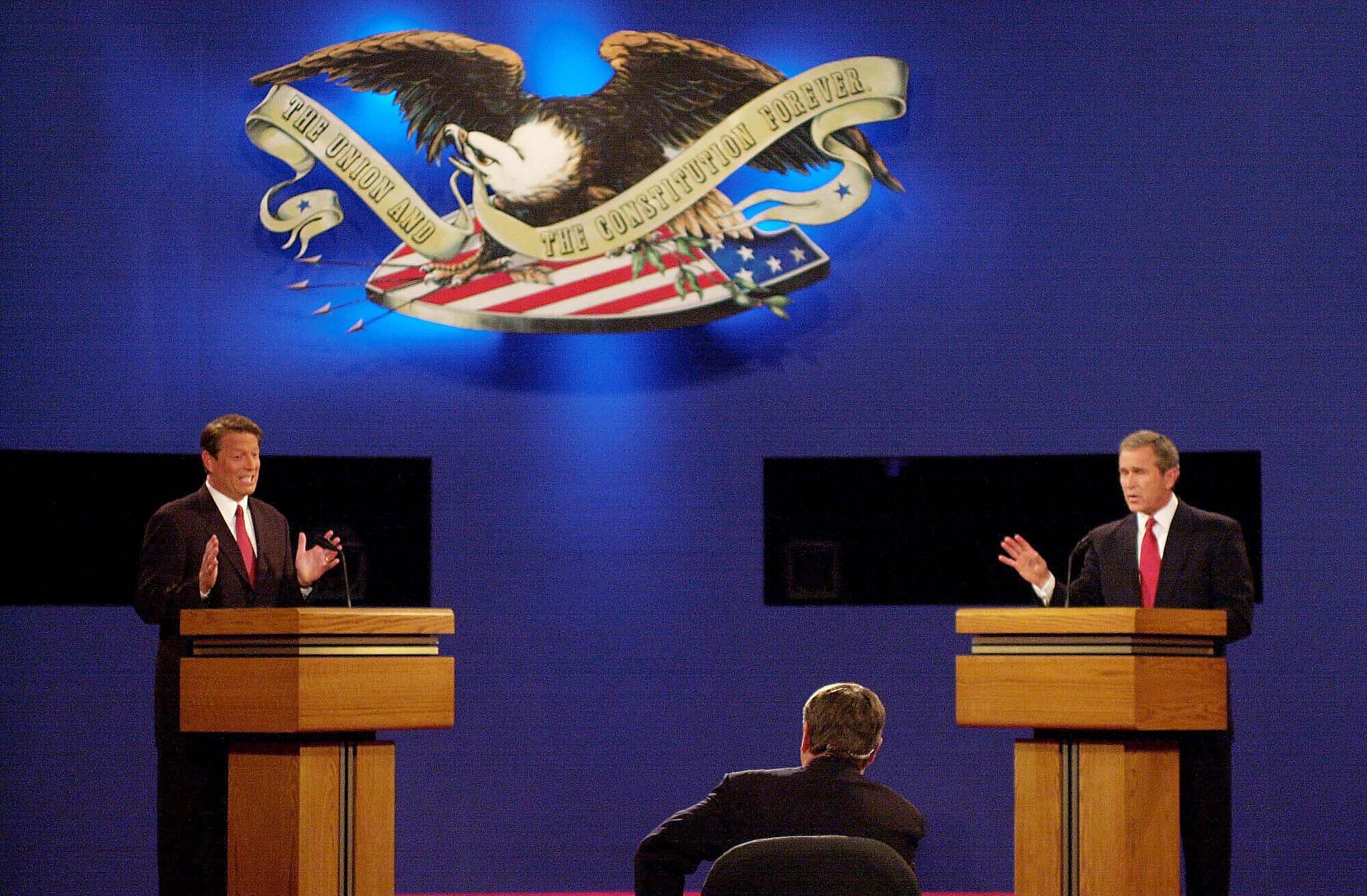Bush v Gore: How one of Supreme Court’s most decisive cases could foreshadow election chaos
The case is back in the spotlight ahead of November’s vote

Your support helps us to tell the story
From reproductive rights to climate change to Big Tech, The Independent is on the ground when the story is developing. Whether it's investigating the financials of Elon Musk's pro-Trump PAC or producing our latest documentary, 'The A Word', which shines a light on the American women fighting for reproductive rights, we know how important it is to parse out the facts from the messaging.
At such a critical moment in US history, we need reporters on the ground. Your donation allows us to keep sending journalists to speak to both sides of the story.
The Independent is trusted by Americans across the entire political spectrum. And unlike many other quality news outlets, we choose not to lock Americans out of our reporting and analysis with paywalls. We believe quality journalism should be available to everyone, paid for by those who can afford it.
Your support makes all the difference.Bush v Gore is without a doubt one of the most politically decisive cases the Supreme Court has ever heard, in which they effectively decided the results of the 2000 presidential election.
The case is back in the spotlight amid Donald Trump's push to appoint a replacement for Ruth Bader Ginsburg before the election - an effort that, if successful, will mean his nominee Amy Coney Barrett has the swiftest appointment in 15 years of hearings.
Trump and his allies believe that having a complete nine-justice Supreme Court already in place for the election is vital, in case of a contested result from the November 3 vote. Critics of Trump, also with an eye on Bush v Gore, are asking Barrett to promise to recuse herself from any Supreme Court deliberations about the election result.
Bush v Gore was the result of George W Bush, at the time the governor of Texas, asking the Supreme Court to decide on a recount of votes in Florida.
Florida is a key state in any presidential election: it carries 29 electoral college votes, meaning only California and Texas hold more sway.
On election night, the result in Florida was too close to call. Following a recount, Bush won Florida by 537 votes, a margin of 0.009 per cent. Gore's campaign challenged the result in the courts, and over an intense month of legal debate the question made it all the way to the Florida Supreme Court.
They ruled that 9,000 ballots in Miami-Dade County be counted by hand.
Bush's lawyers argued that was unconstitutional.
Al Gore's lawyers, led by David Boies - who went on to represent Harvey Weinstein, victims of Jeffrey Epstein, and Theranos founder Elizabeth Holmes - insisted that the recount was necessary.
They argued that the process for determining the intent of the voters based on “hanging chads”, “dimpled chads”, or other similar partial impressions in the paper ballots was not accurate.
On December 7, 2000, the Supreme Court agreed to review the Florida Supreme Court's decision, and temporarily blocked the recount.
The question was: Did the Florida Supreme Court violate the US Constitution by making new election law? Do manual recounts violate the Fourteenth Amendment - in particular, the equal protection and the due process clauses?
On December 11 they heard arguments from Boies and from Bush's attorney, Theodore Olson, who had been legal counsel to Ronald Reagan.
A day later the Supreme Court issued their ruling. They voted 9-2 in favor of Bush's legal team, agreeing that the recount of the Florida votes was unconstitutional because the equal protection clause guarantees individuals that their ballots cannot be devalued by "later arbitrary and disparate treatment".
Ruth Bader Ginsburg and John Paul Stevens - who retired in 2010 and died in 2019 - disagreed with their colleagues on the bench.
They argued that, for reasons of federalism, the Florida Supreme Court's decision ought to be respected. They further argued that the Florida decision was fundamentally right; the Constitution requires that every vote be counted.
The result was that Bush became president - making him the first since Benjamin Harrison in 1888 to be elected president having won the electoral college, but lost the popular vote. Bush won 271 electoral votes - one more than a majority - despite Gore receiving 543,895 more votes
Donald Trump, of course, would follow Bush in winning the electoral college, but losing the popular vote.



Join our commenting forum
Join thought-provoking conversations, follow other Independent readers and see their replies
Comments